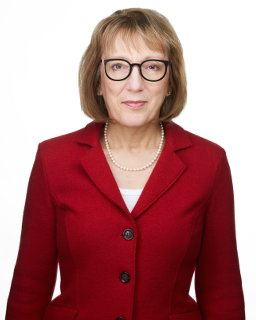Prof. Linda C. Reif to participate in project focused on intersectional approaches to COVID-19 research
Carmen Rojas - 31 January 2022

Over the last two years, the challenges presented by the COVID-19 pandemic have brought the importance of intersectional research into sharper focus.
“People have multiple facets of their identity, and the intersectionality between these different facets can result in exponentially worse discrimination,” said University of Alberta Faculty of Law CN Professor of International Trade and Associate Dean (Graduate Studies) Linda C. Reif. “For example, there is gender-based discrimination against women, but if you’re an older woman or a woman of colour, you’re likely going to experience much worse discrimination.”
Reif’s COVID-related research has examined the issues faced by older populations during the pandemic. Now, a Worldwide Universities Network (WUN) research grant initiated at the University of Alberta is exploring ways to develop better methodologies for addressing the health and social inequities caused by COVID.
“Intersectional Research Methodologies: Towards a Sustainable Post COVID-19 Future” is led by Bukola Salami, associate professor in the Faculty of Nursing and director of Intersections of Gender, a Signature Area of Research and Teaching at the University of Alberta.
It brings together researchers in health and social sciences from institutions around the world, including Canada, the United States, England, Germany, the Netherlands, Switzerland and Taiwan.
The first phase of their project is a literature review that focuses on work by researchers who have used intersectionality theory in different ways and the findings of this work.
The next step will be a training webinar for graduate students on intersectionality methods, followed by two workshops to present the project’s findings to key stakeholders, including policy makers.
Reif, who is the group’s only legal scholar, will contribute her expertise on international human rights law. She points to the work of the United Nations’ Committee on the Elimination of Discrimination against Women (CEDAW), which oversees the “Convention on the Elimination of All Forms of Discrimination against Women,” as one area of interest.
“I’m anticipating what I will be finding is material that looks at the international human rights law obligations of states — and in particular CEDAW, but potentially other human rights treaties — and where they may be running afoul of their obligations in terms of COVID and intersectionality,” said Reif.
Overall, the project’s goal is to enable intersectional research methods to have a greater impact on social and health research, policy and practice. For more information, visit the WUN website.